Last year’s Ahrefs Evolve was about surviving Google’s updates.
This year? We barely talked about algorithms. Instead, more than 500 marketers gathered and listened raptly as every conversation circled back to AI.
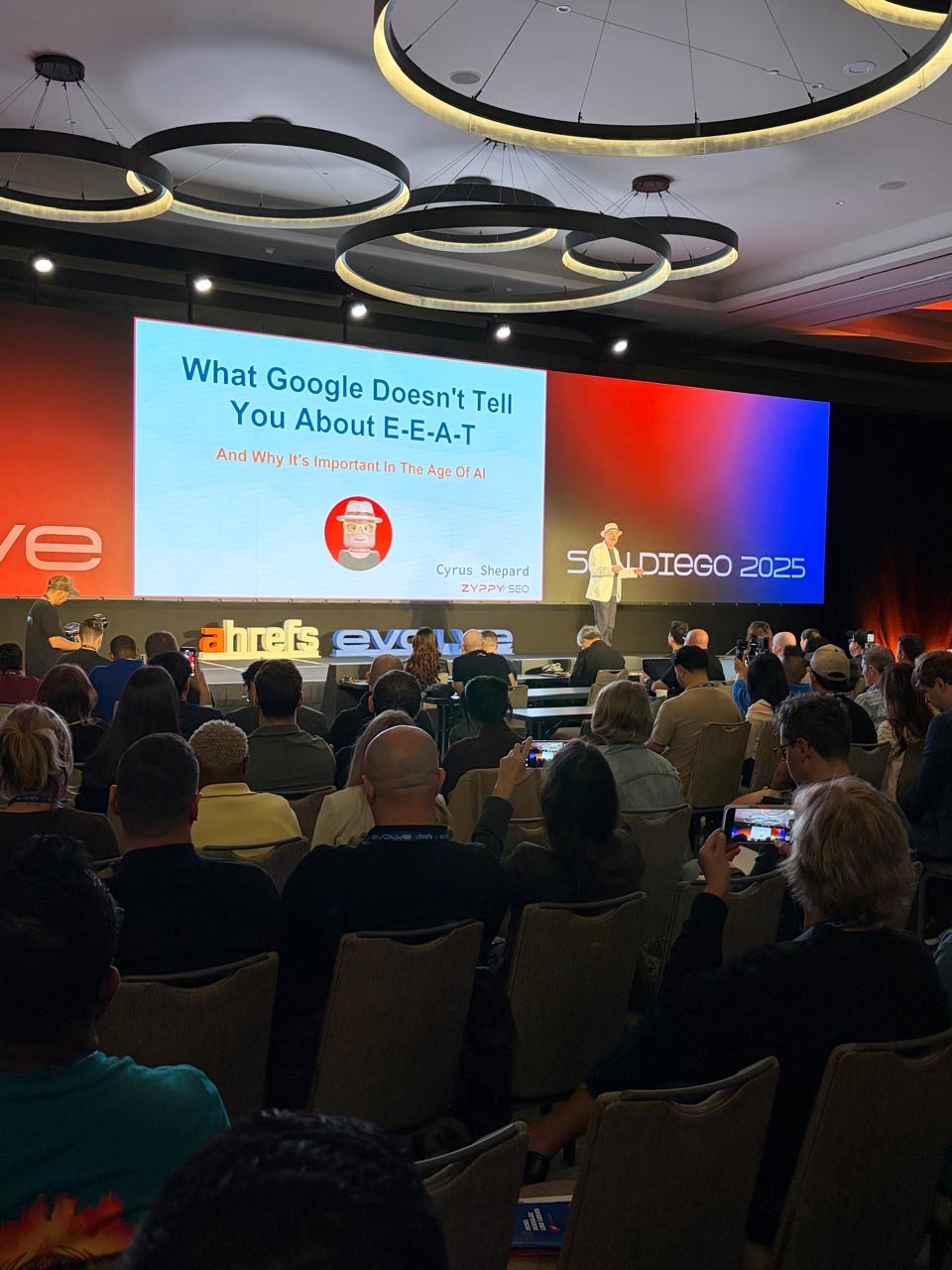
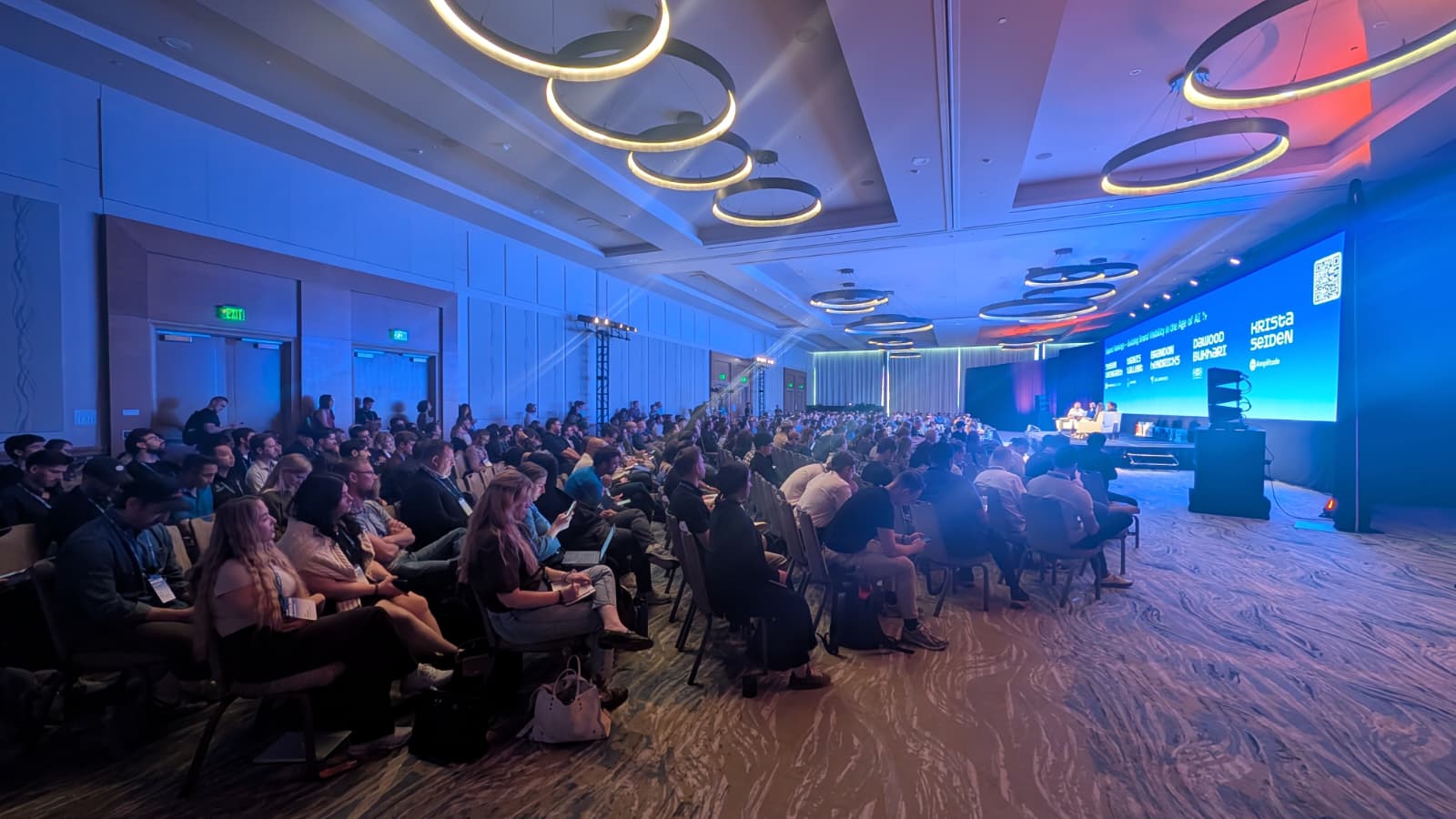
Its meteoric impact on our industry cannot be overstated.
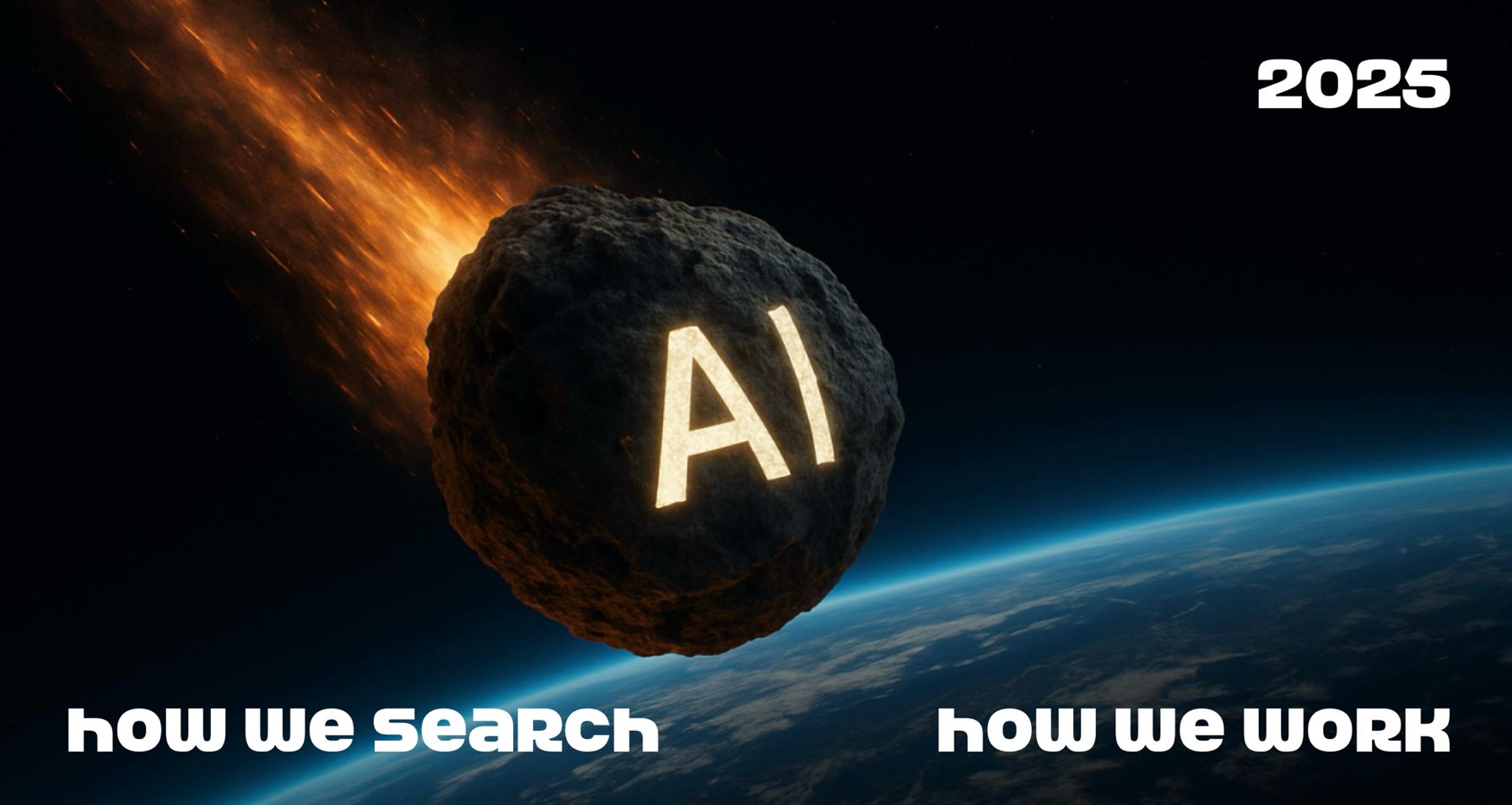
Here are the four themes that defined Ahrefs Evolve 2025 for me.
Pro Tip
Want to experience Ahrefs Evolve 2026? Be the first to know when the tickets drop. Join the waitlist here.
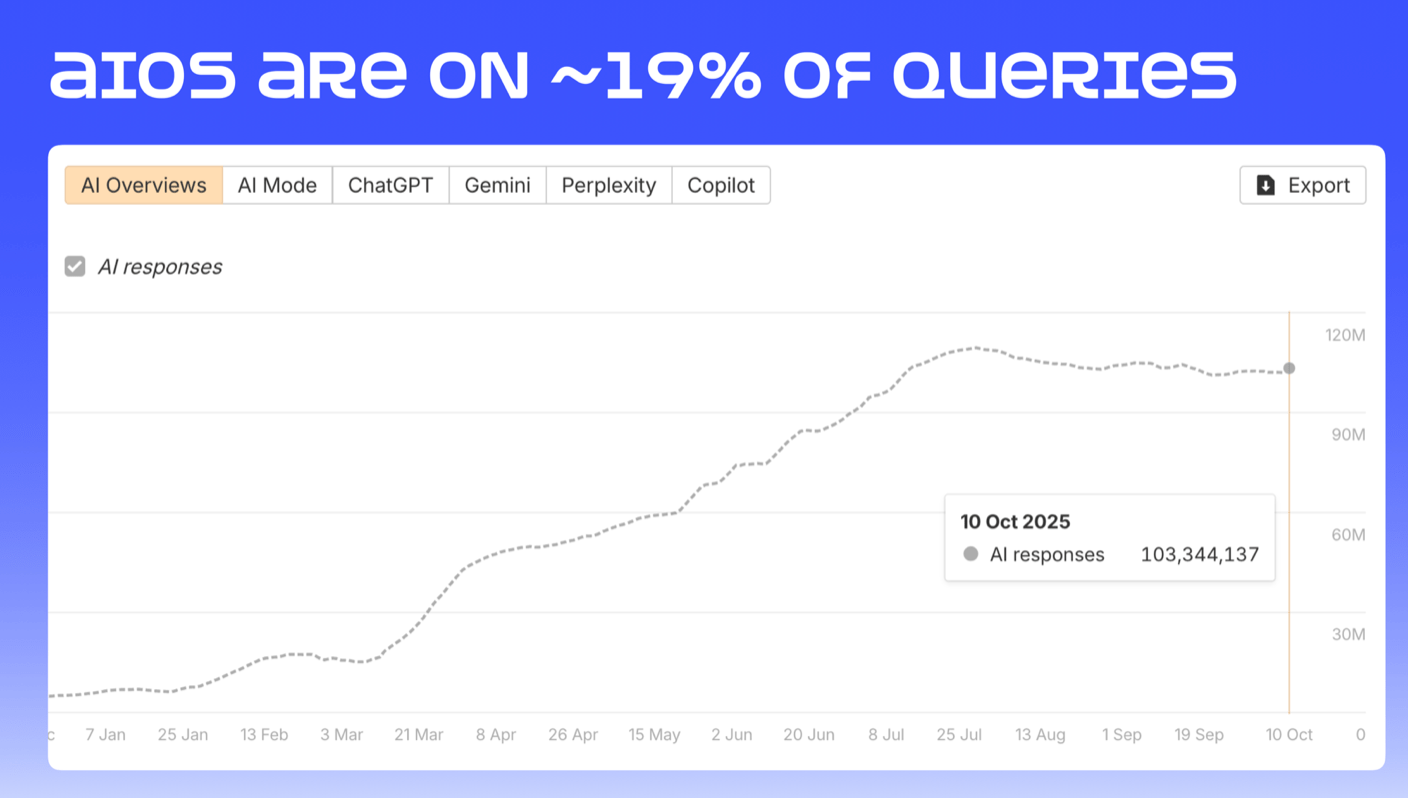
Slide from Patrick Stox
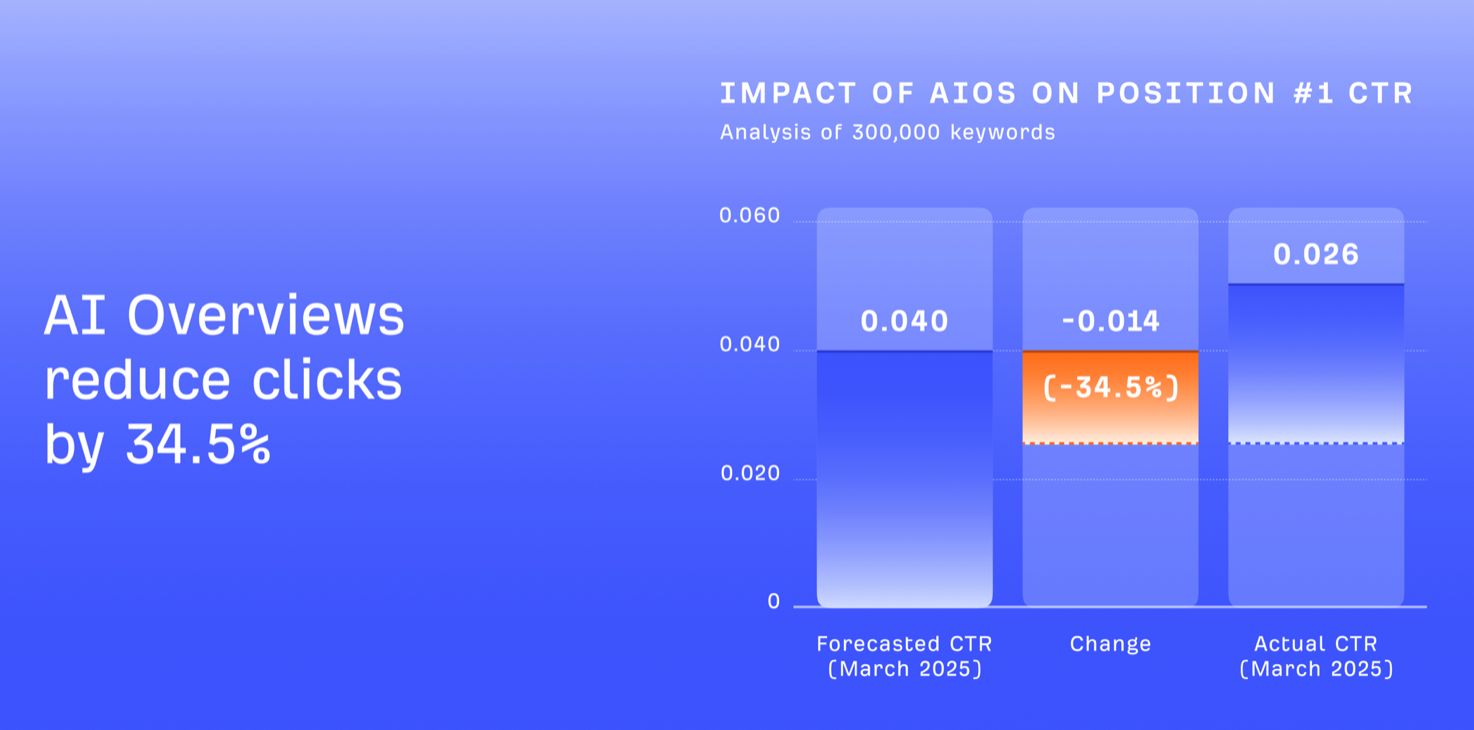
Slide from Patrick Stox
Even before that, TikTok was gradually becoming the go-to search engine for Gen Zs. Other searchers were turning directly to Reddit for authentic comments and reviews.
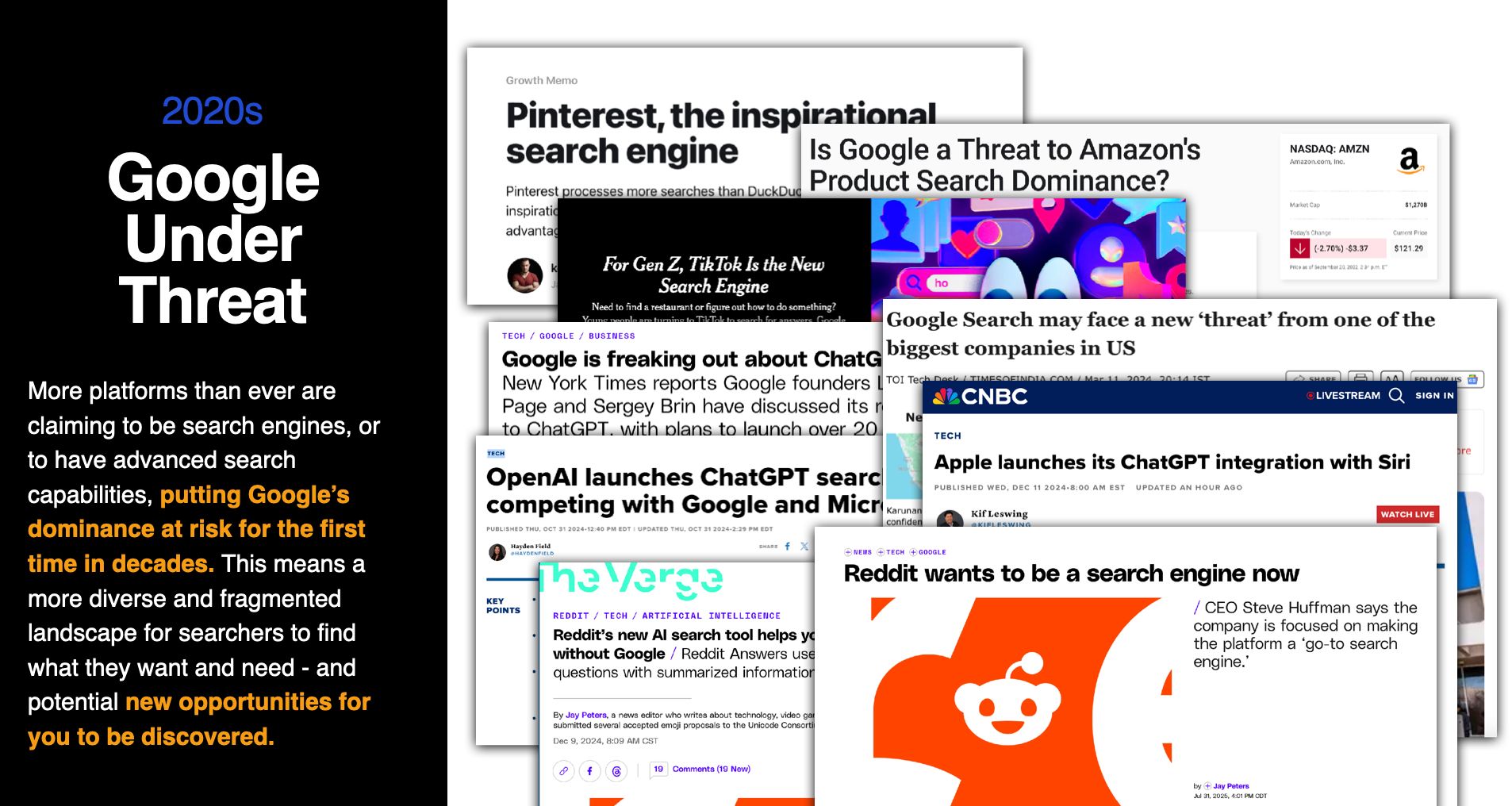
Slide from Heather Physioc
Search behavior has changed massively. We don’t just search in that one Google box anymore. Users are discovering content, ideas, places, and buying from all sorts of places: YouTube, TikTok, Reddit, Amazon, Instagram, Discord, and more.
It’s time that SEOs recognized that. As Heather Physioc mapped it out in her presentation, the modern search journey looks more like this:
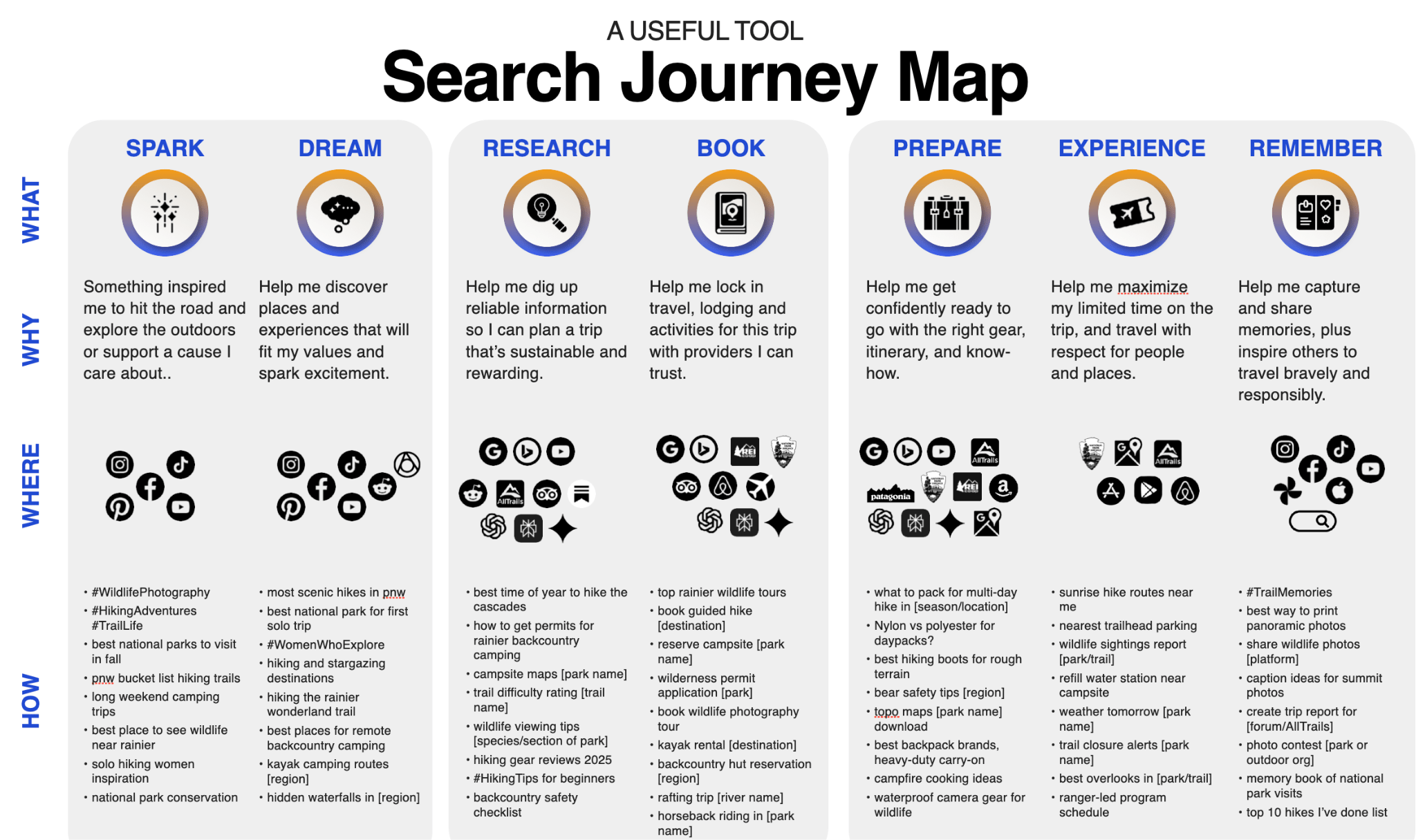
Slide from Heather Physioc
Search isn’t just Google anymore and SEO isn’t just search engine optimization. It’s now search everywhere optimization.
You have to ask, “Where is our audience actually looking, and how do we show up there?”
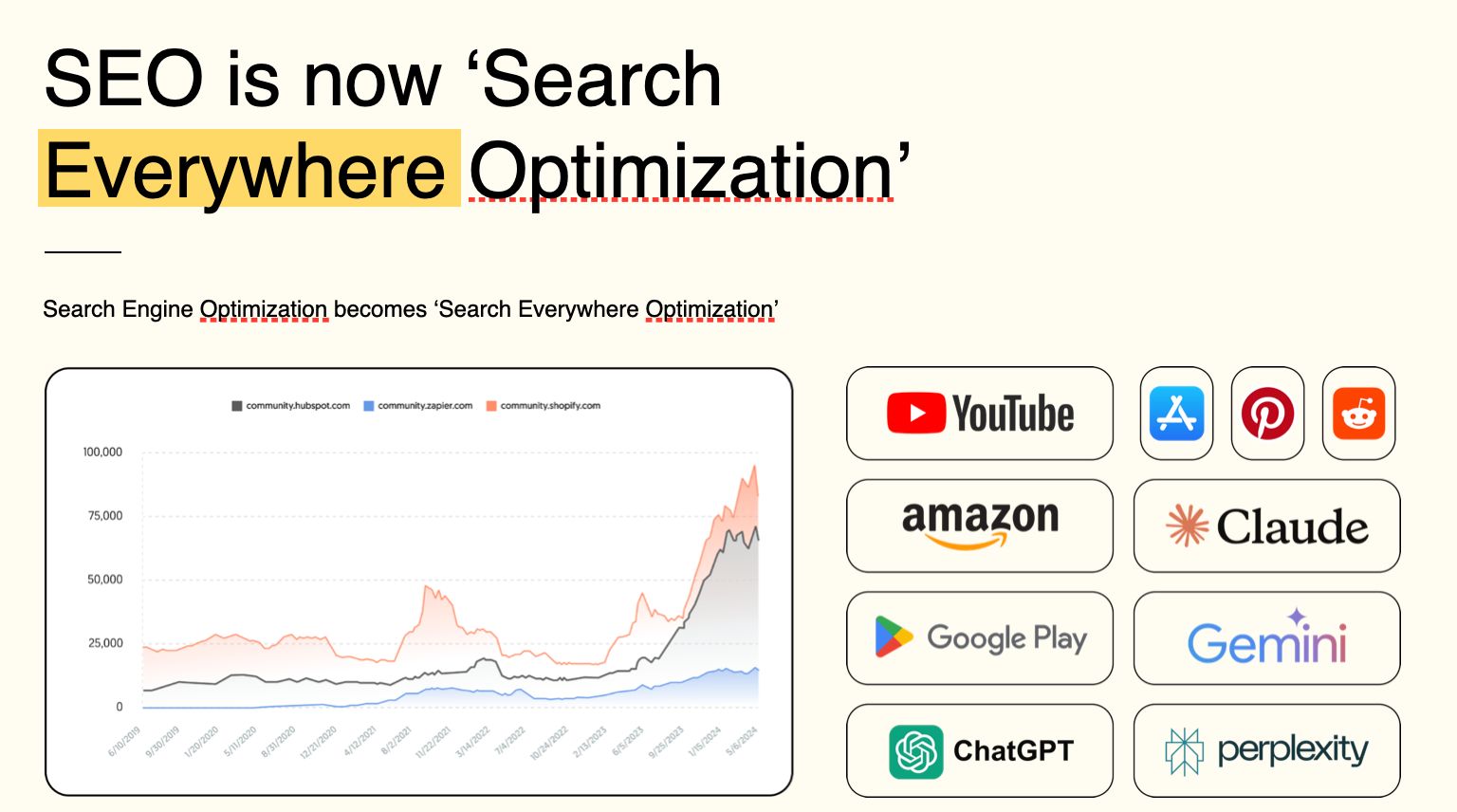
Slide from Eric Siu
To do this, SEOs can’t work in silos anymore. The new SEO leaders have to work across different teams.
I mean, just look at the strategies Patrick suggested that works for GEO:
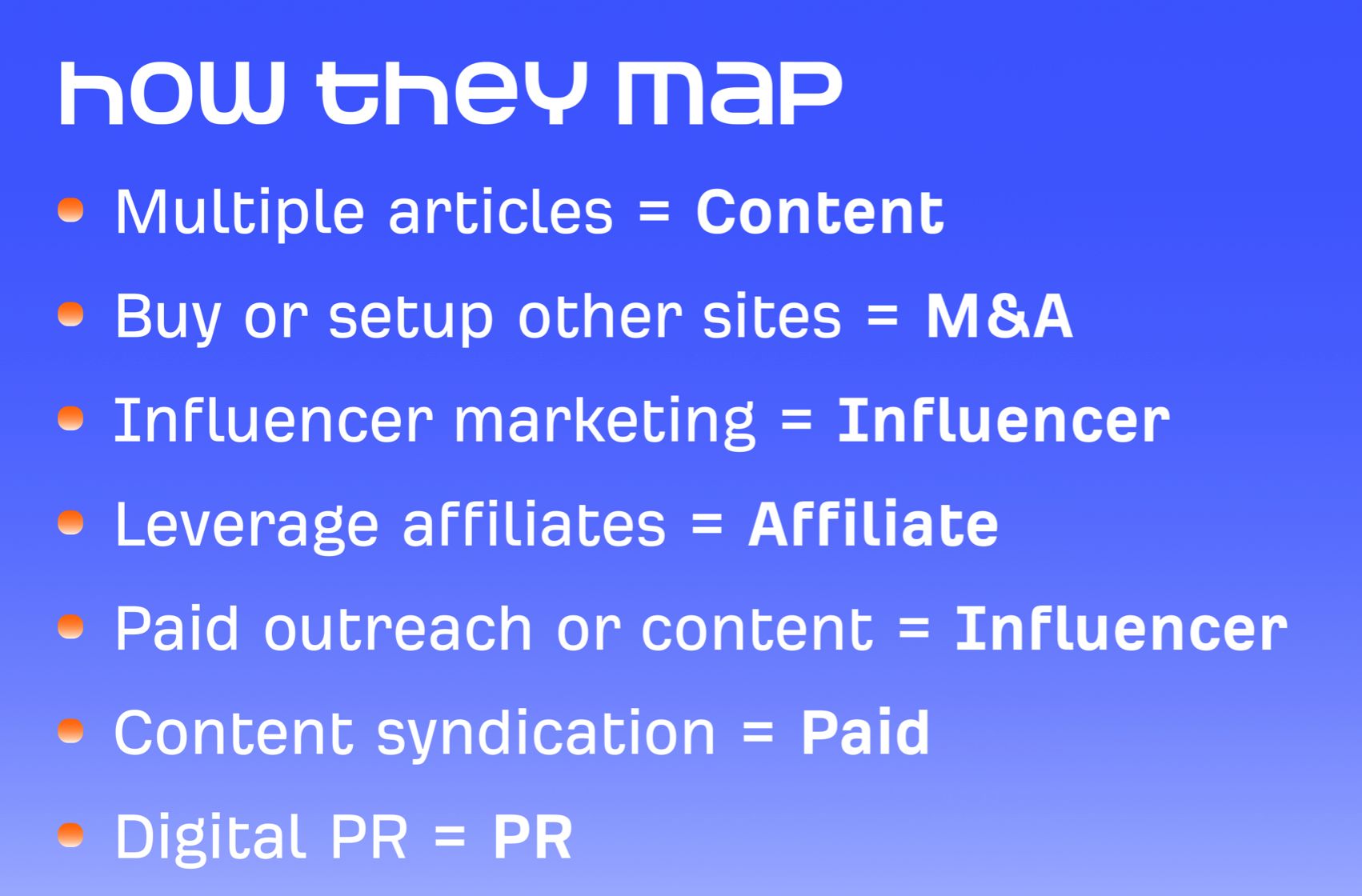
Slide from Patrick Stox
They’re the job descriptions of different teams. SEOs can’t do them all. The only way is to have more teams and collaborate more often.
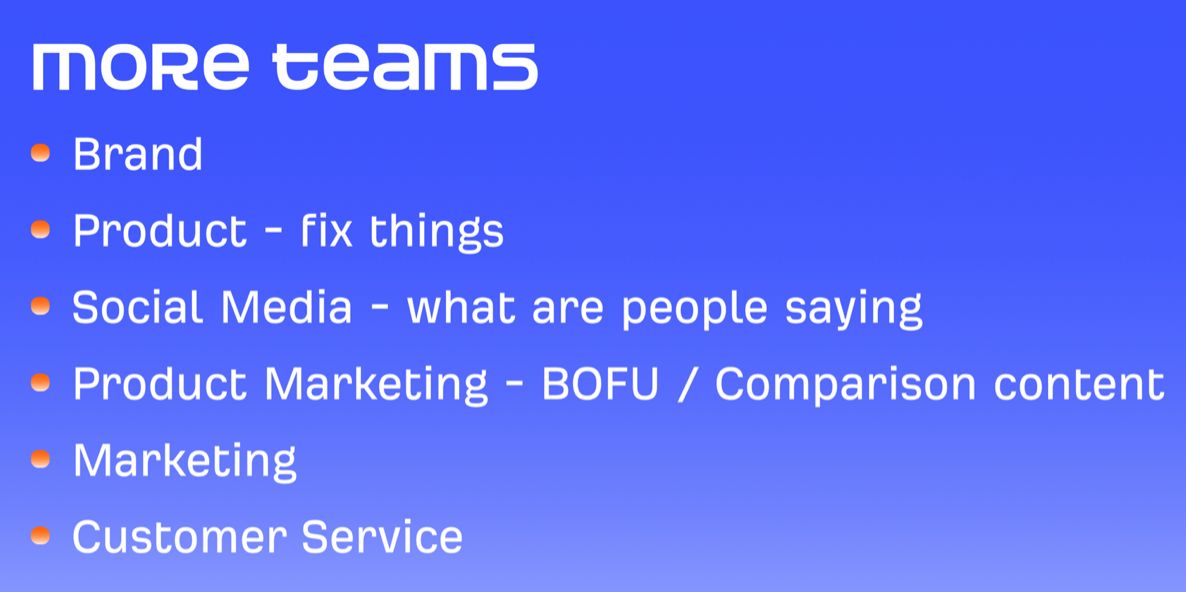
Slide from Patrick Stox
Or as Bryan Casey puts it, you want to reframe your job description and mindset from SEO to “General Manager of Inbound”:
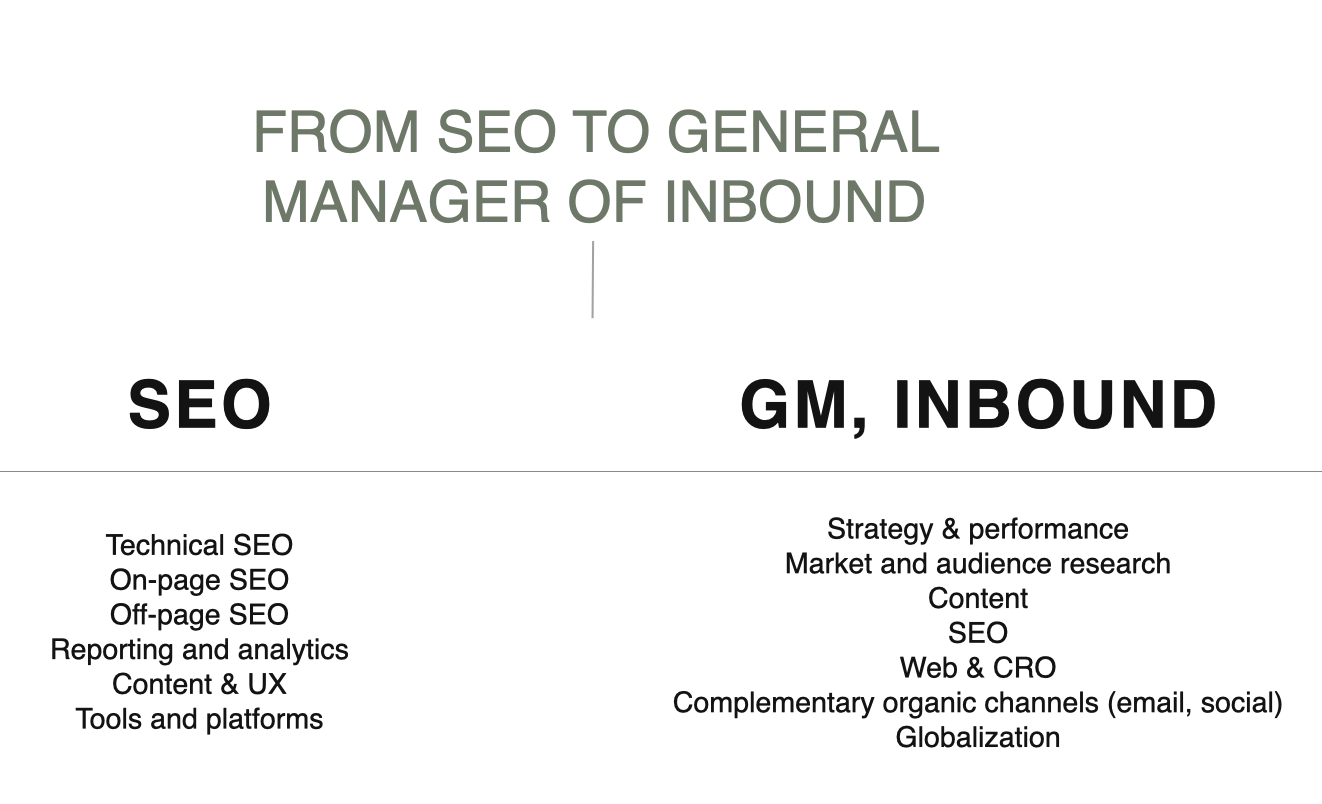
Slide from Bryan Casey
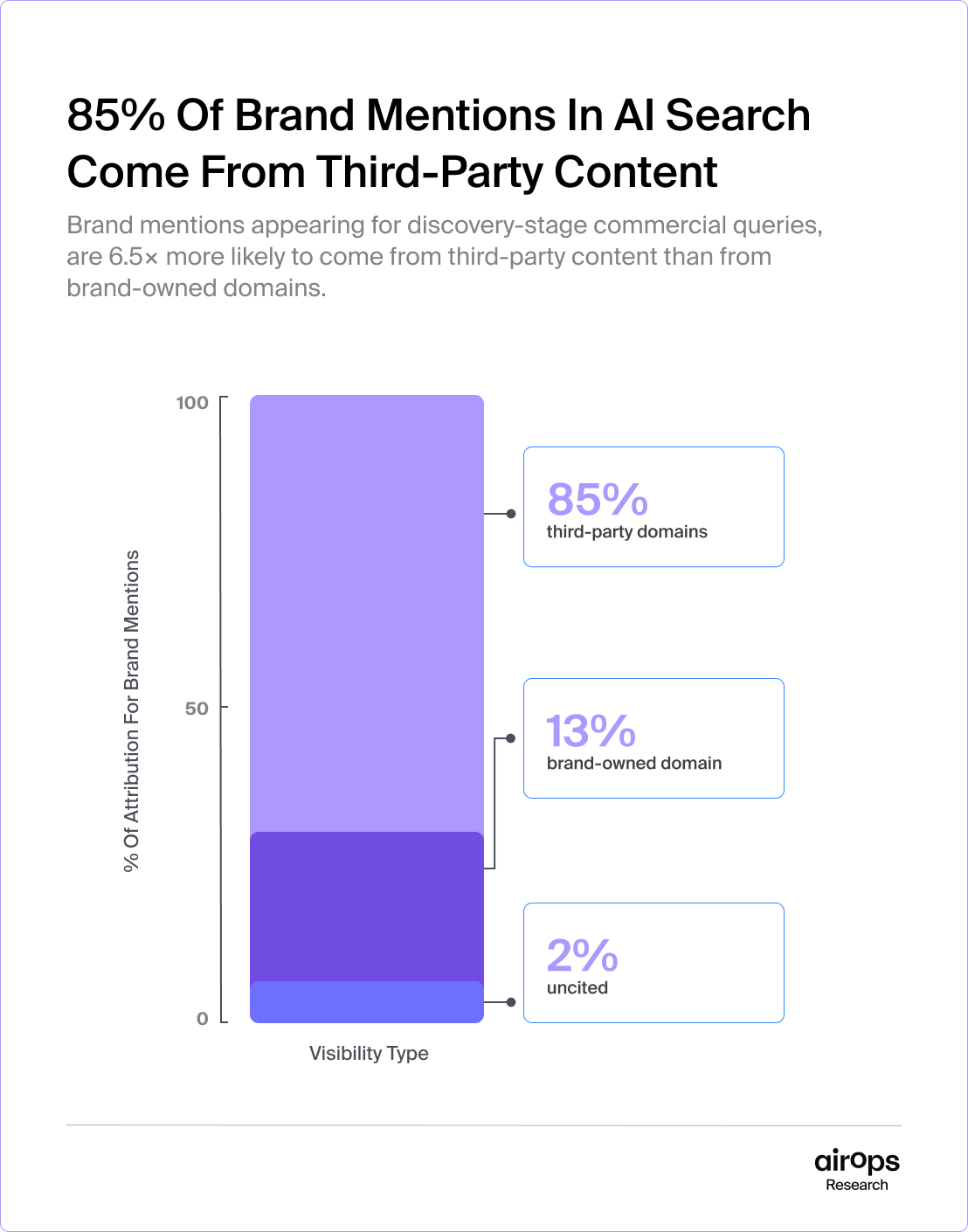
Google and other LLMs are trained on what the Internet says and therefore increasingly rely on offsite brand and category signals.
As Carrie Rose puts it, “brand is the new SEO.”
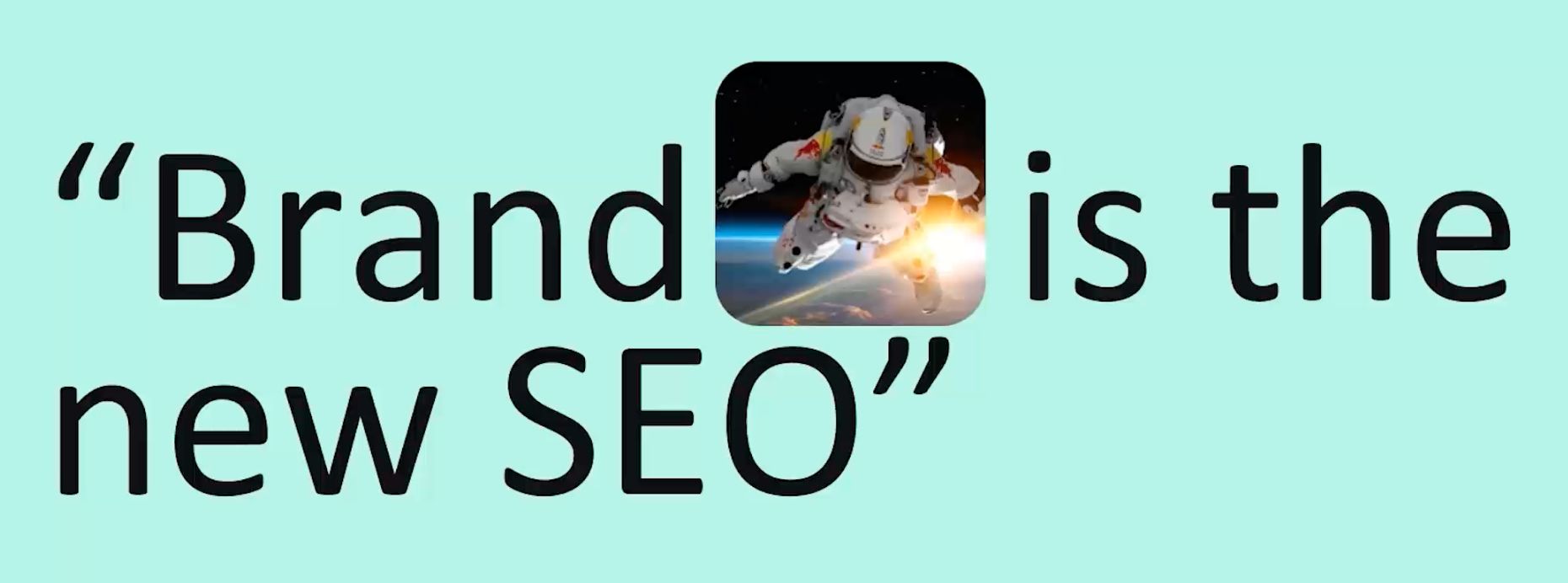
Slide from Carrie Rose
Simply put: LLMs like popular brands.
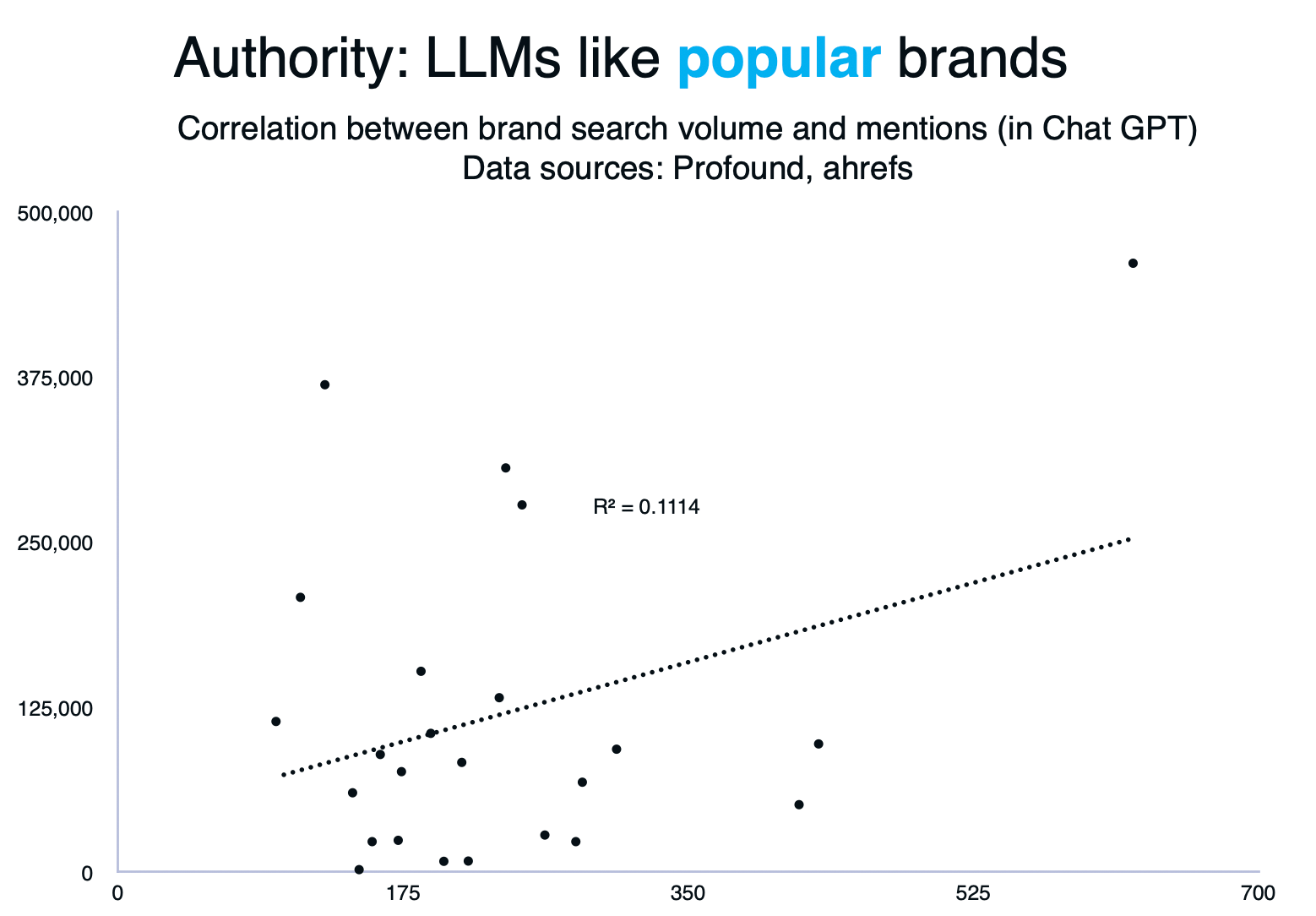
Slide from Kevin Indig
Why? Because LLMs “cite” the brands they trust, and that trust is built the same way as human trust—via reputation.
So, if you want to appear in LLMs, you have to build trust, authority, and brand awareness. Fortunately, our speakers had some great ideas on how to do that exactly.
Carrie Rose thinks that brand salience is the most important ranking factor: “The best marketers are training people and the Internet to associate their brand with the category term.”
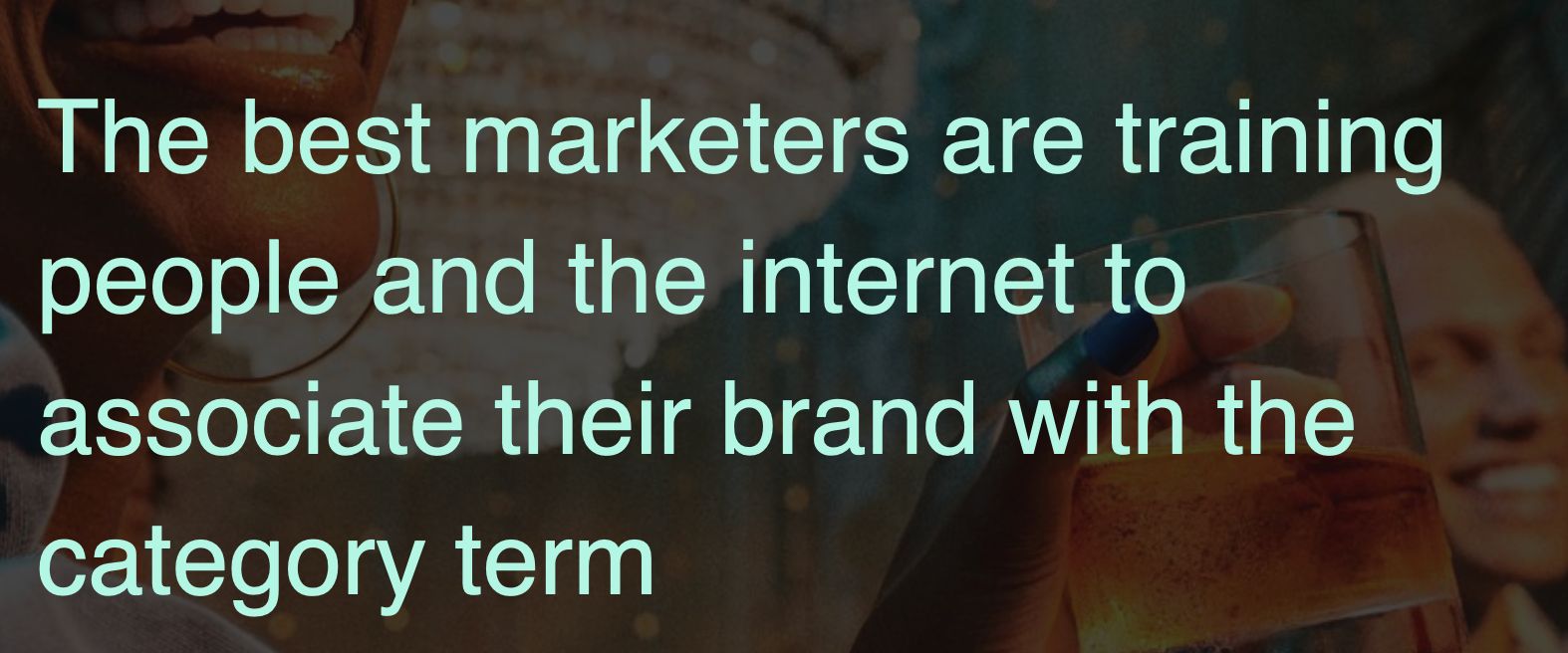
Slide from Carrie Rose
How do you build a brand? From Cyrus Shepard’s presentation, building a brand means appearing on podcasts, doing interviews, running digital PR, being on directories, and having strong author profiles:
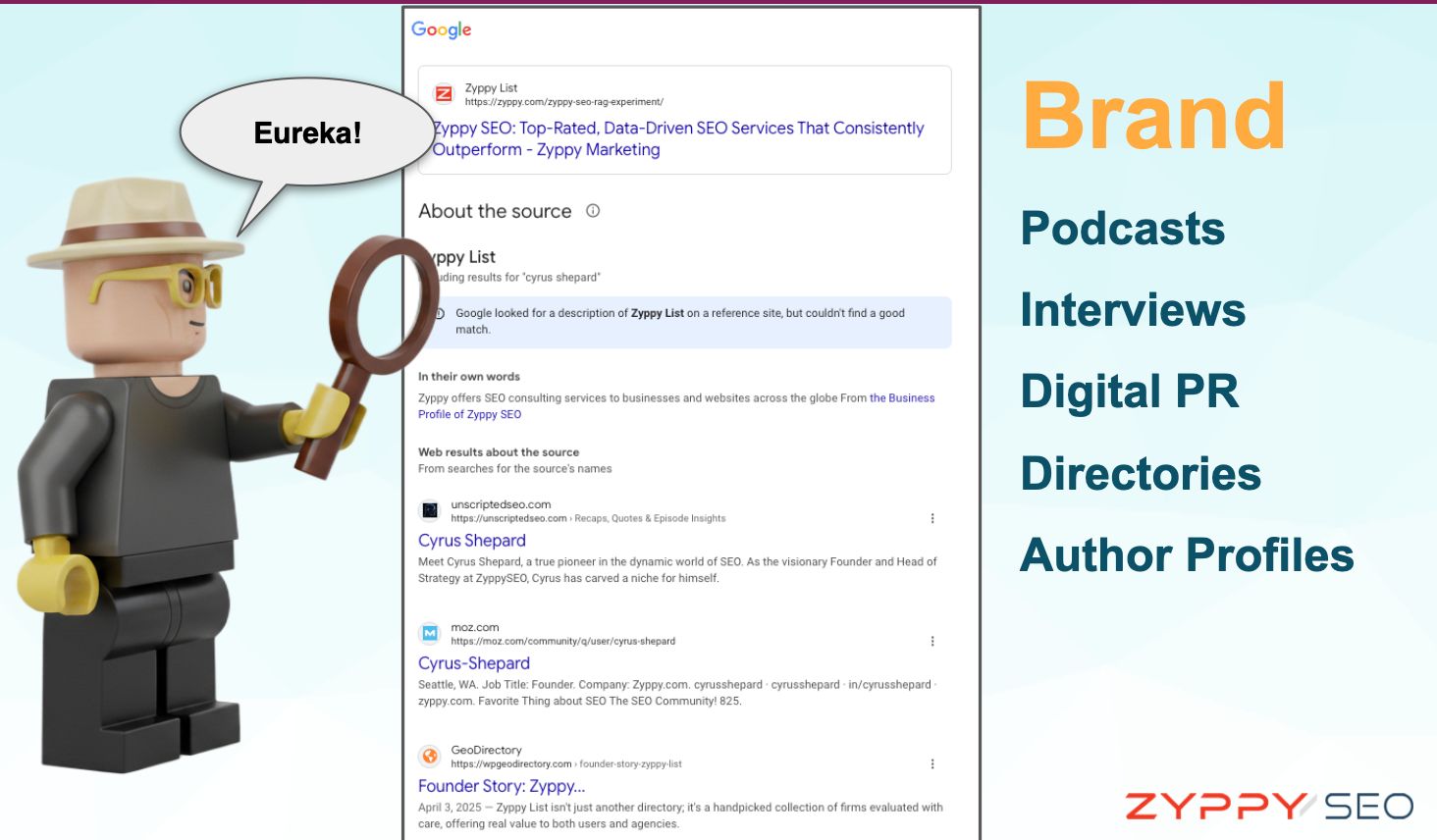
Slide from Cyrus Shephard
Kevin Indig’s brilliant “authority stack” diagram shows how your site and brand can start building trust via a flywheel:
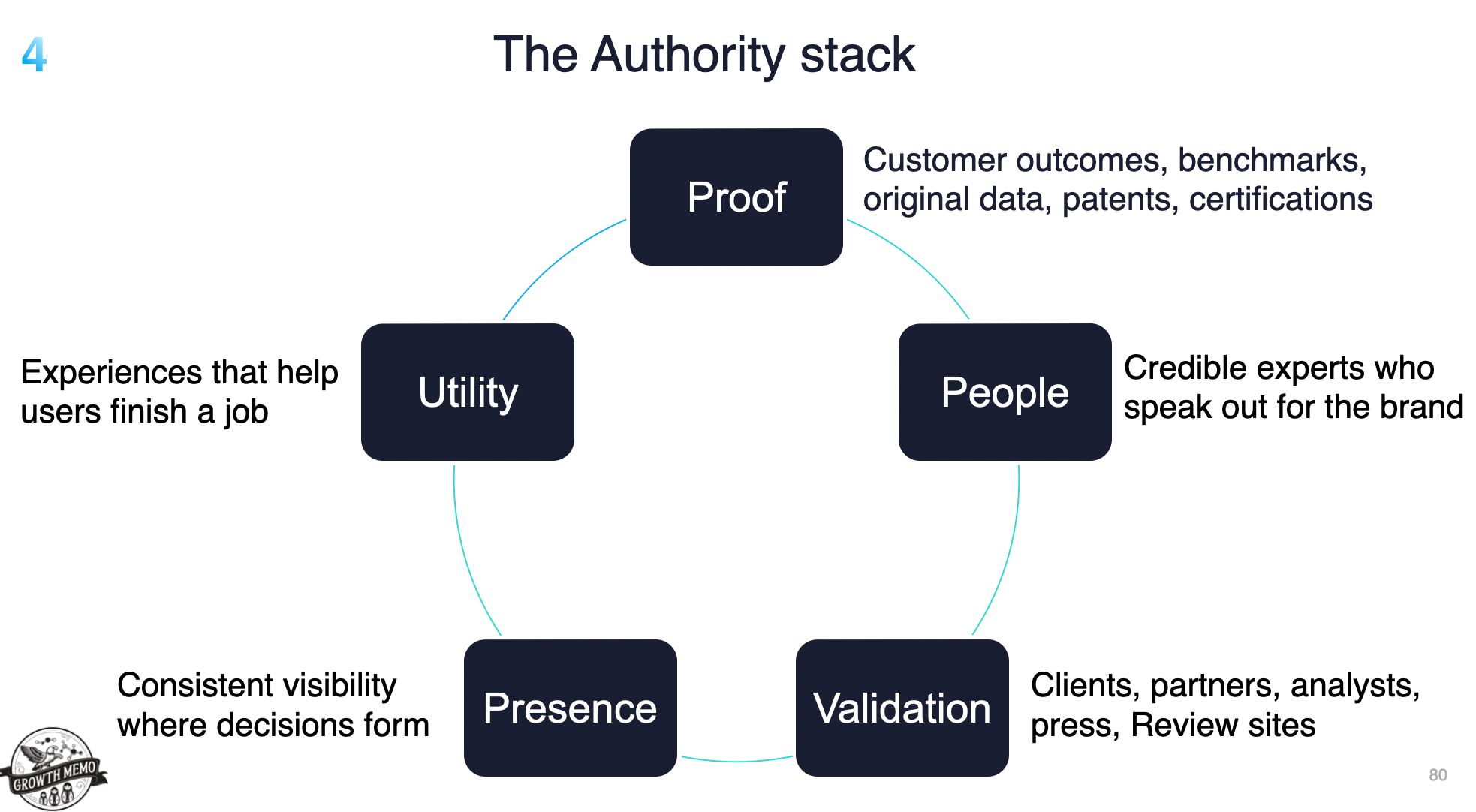
Slide from Kevin Indig
And the most common theme I saw was to be the only.
As Peep Laja says, “you need to figure out your onlyness.”
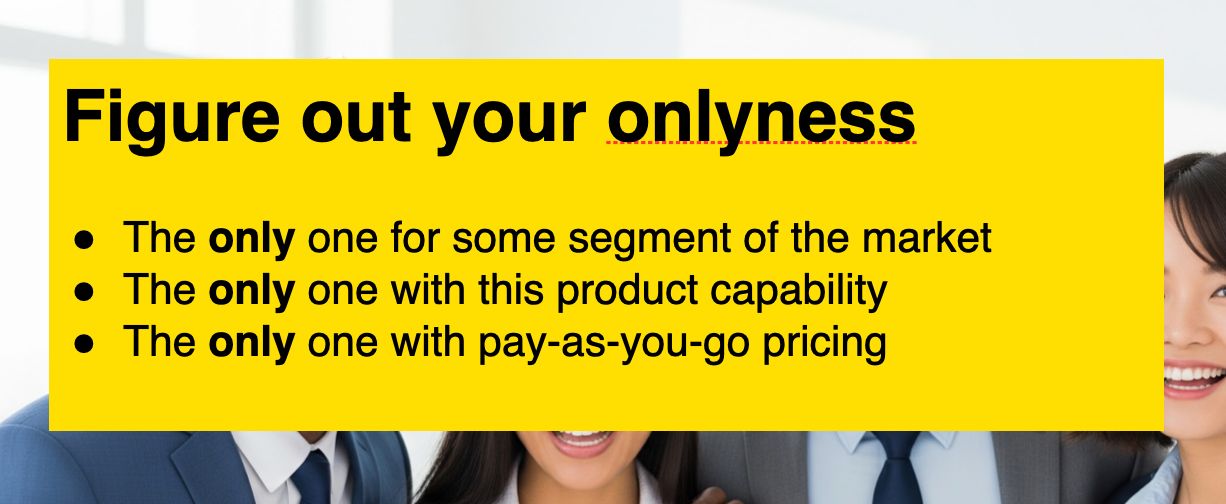
Slide from Peep Laja
Not just for your positioning, but for everything you do. Especially your content. Cyrus says you should be the expert, not an expert. And Kevin says that you should be the only one with unique insights.
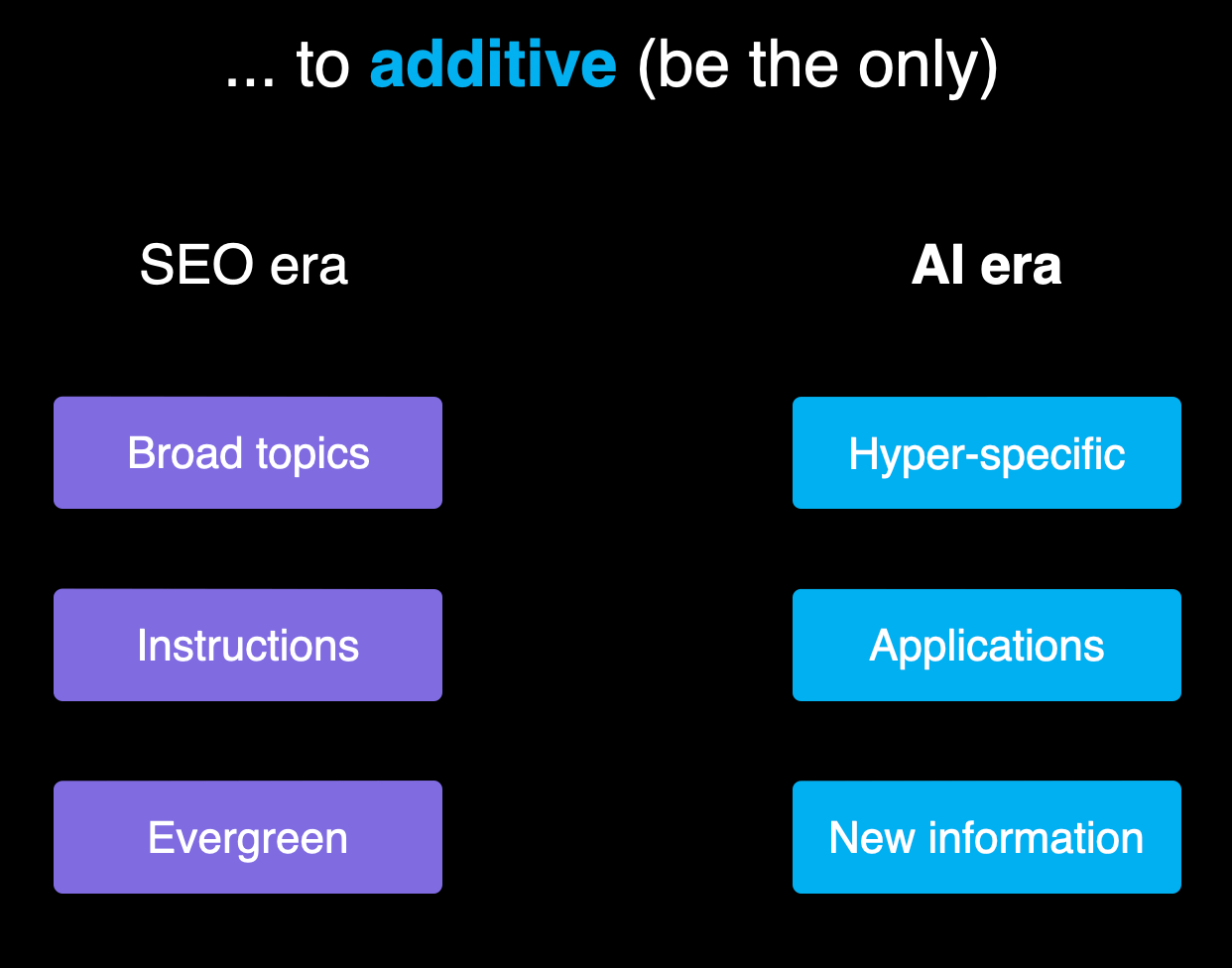
Slide from Kevin Indig
However, it doesn’t mean you’re running off to “do AI for AI’s sake.” LLMs are not a human intern replacement. They’re AI and will work like AI.
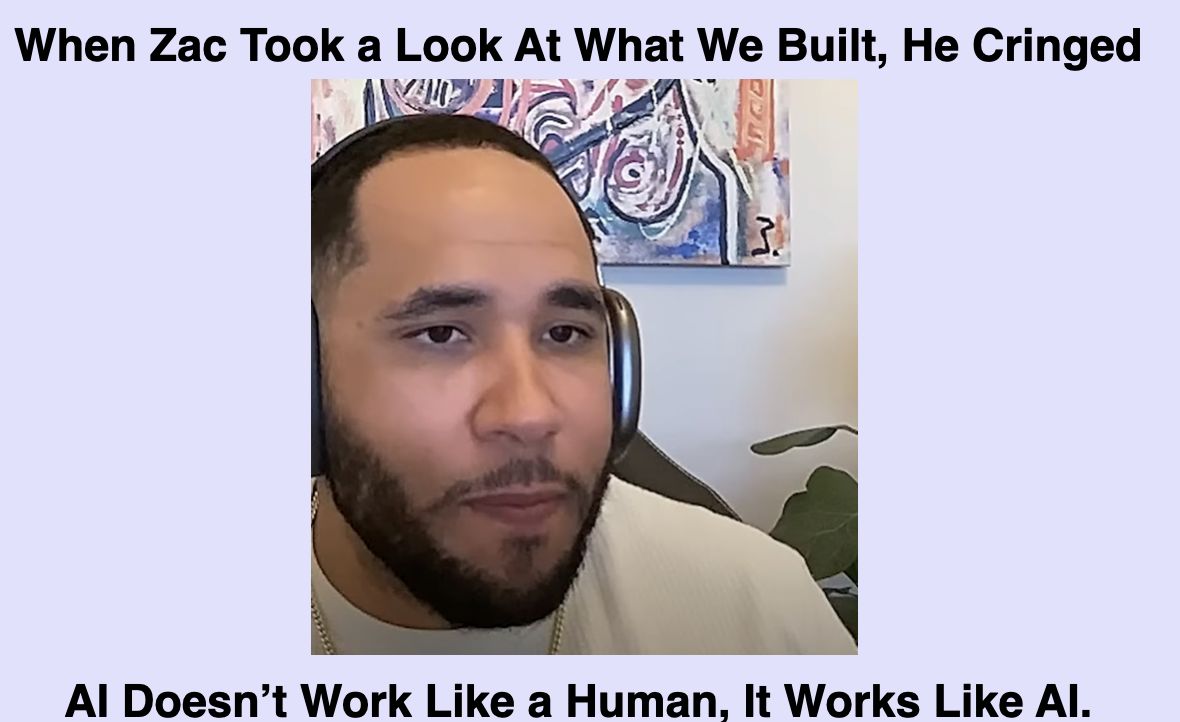
Slide from JH Scherck
As Ryan Law, our Director of Content Marketing puts it, you want to use it to automate your checklist items and free yourself to do the important 20%: taste, judgement, and strategy.
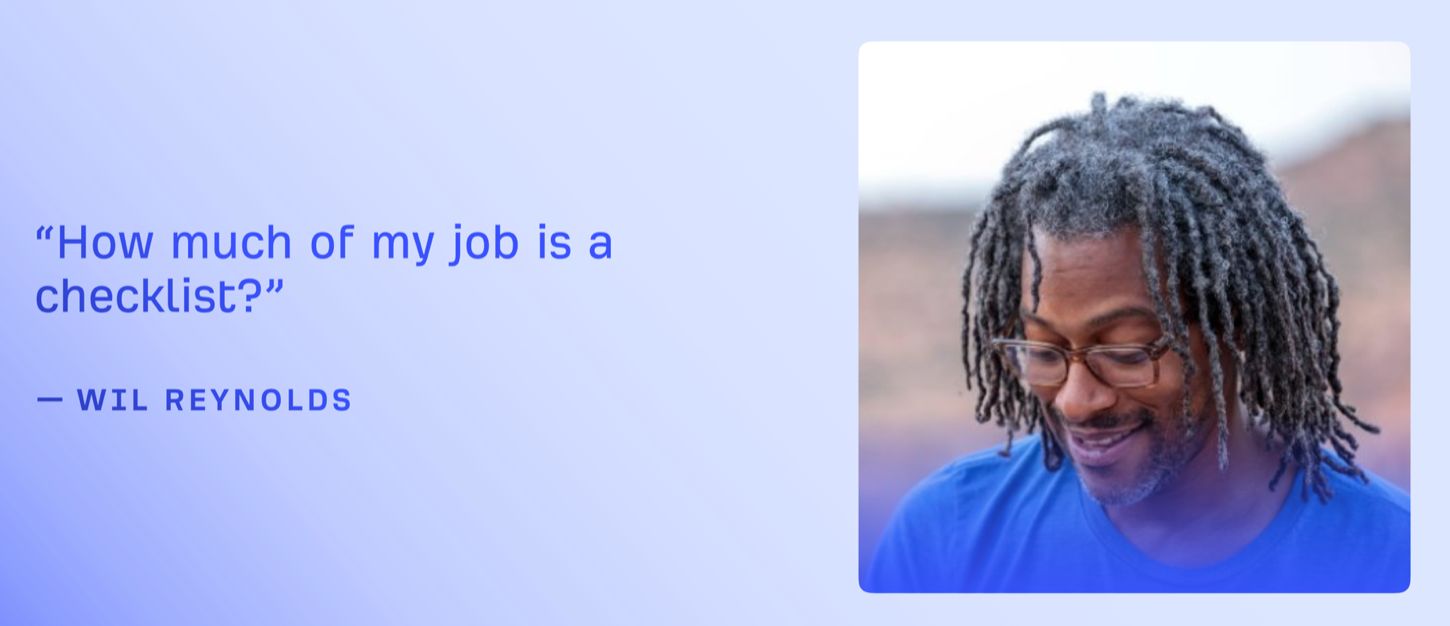
Slide from Ryan Law
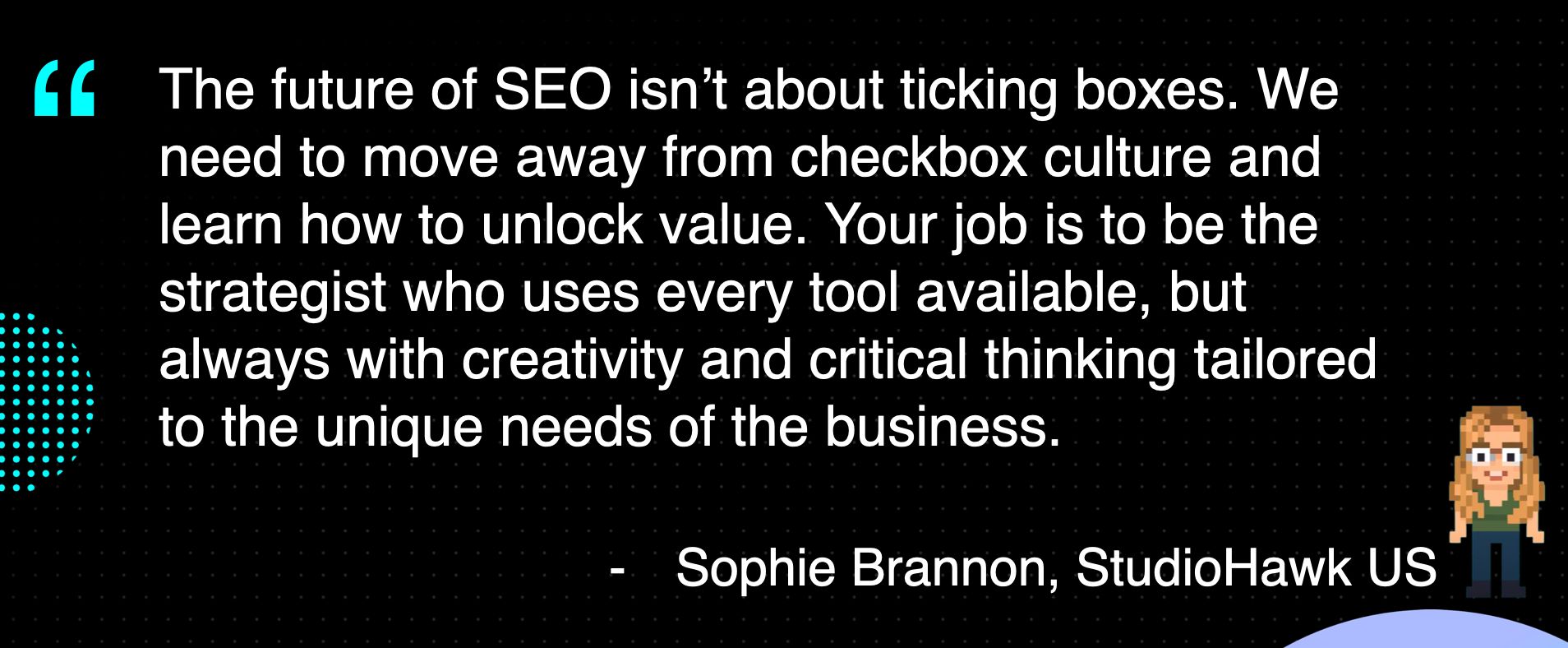
Slide from Sophie Brannon
However, despite what you read on LinkedIn daily, you can’t just sit down and automate every single part of your work with AI. Even if it’s a checklist item.
You still need humans to check and verify that you’re not producing slop, publishing hallucinations, and that everything is working as intended. If you skip the unglamorous parts of AI adoption, i.e. not verifying what LLMs are creating, all you’ll get are broken workflows, inflated compute bills, and entire campaigns derailed by a single typo replicated at scale.
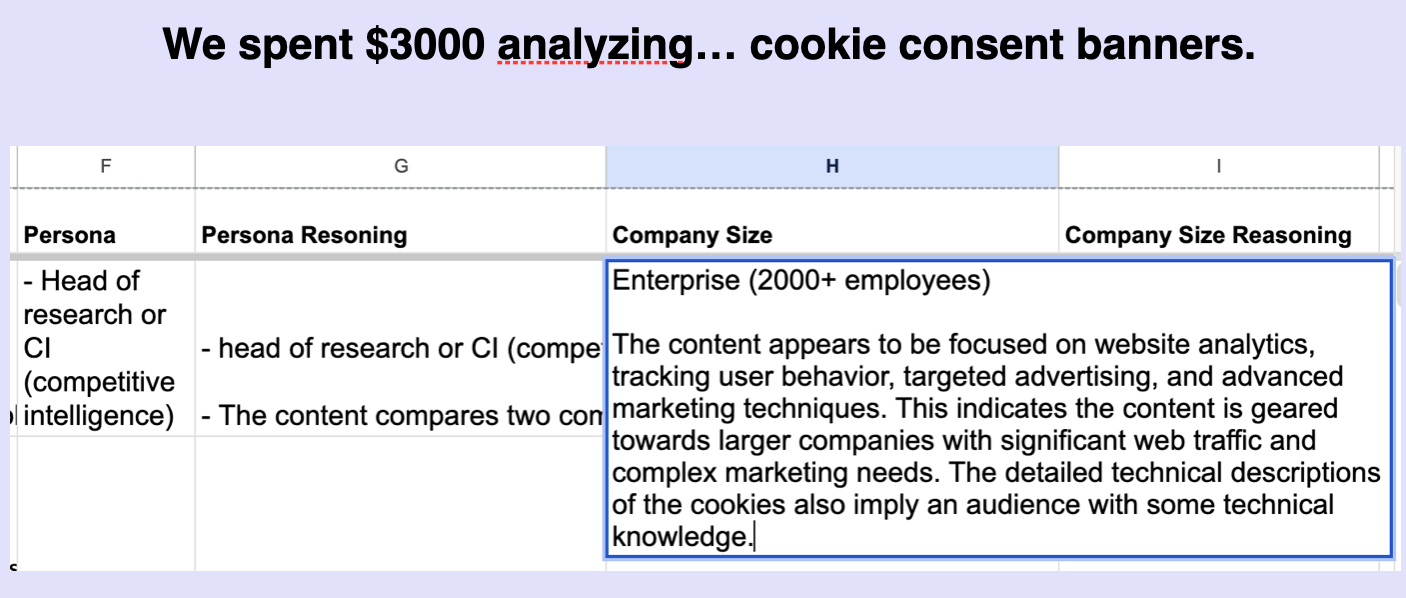
Slide from JH Scherck
If you want to start integrating AI into your work and processes, here’s what JH suggests:
- Start small and do things that don’t scale
- Treat prompting as a critical skill for everyone
- Establish AI verification guidelines and refine standards across the board
- Create internal AI learning hubs
- Run weekly AI show and tell sessions
- In every 1:1, ask “how did you use AI this week?”
How do you do that? Madhav Bhandari has systematized this into a framework: PIPE.
- Pattern identification — Spot the sameness in each channel and find a pattern to interrupt
- Interrupt guardrails — Set up boundaries so you don’t pattern interrupt blindly. For example, is it on-brand or will it help build the pipeline?
- Portfolio design — Balance the loud plays that grab attention and the thoughtful plays that drive credibility
- Execution system — Make it repeatable. Test small, review monthly, scale up, and reward failures
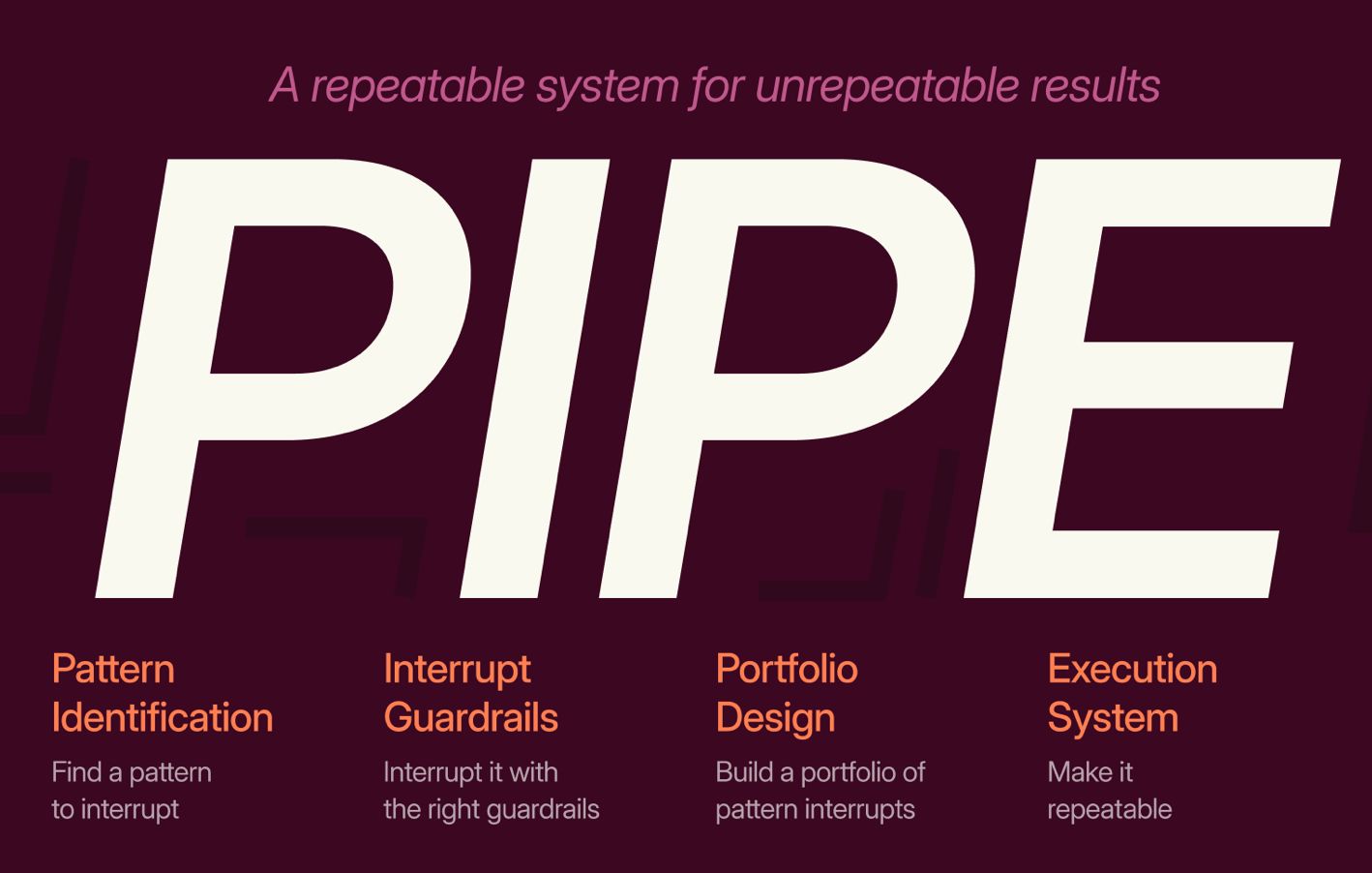
Slide from Madhav Bhandari
Mark Schaefer’s framework is simpler. You can disrupt the story, story medium, storyteller, or all three.
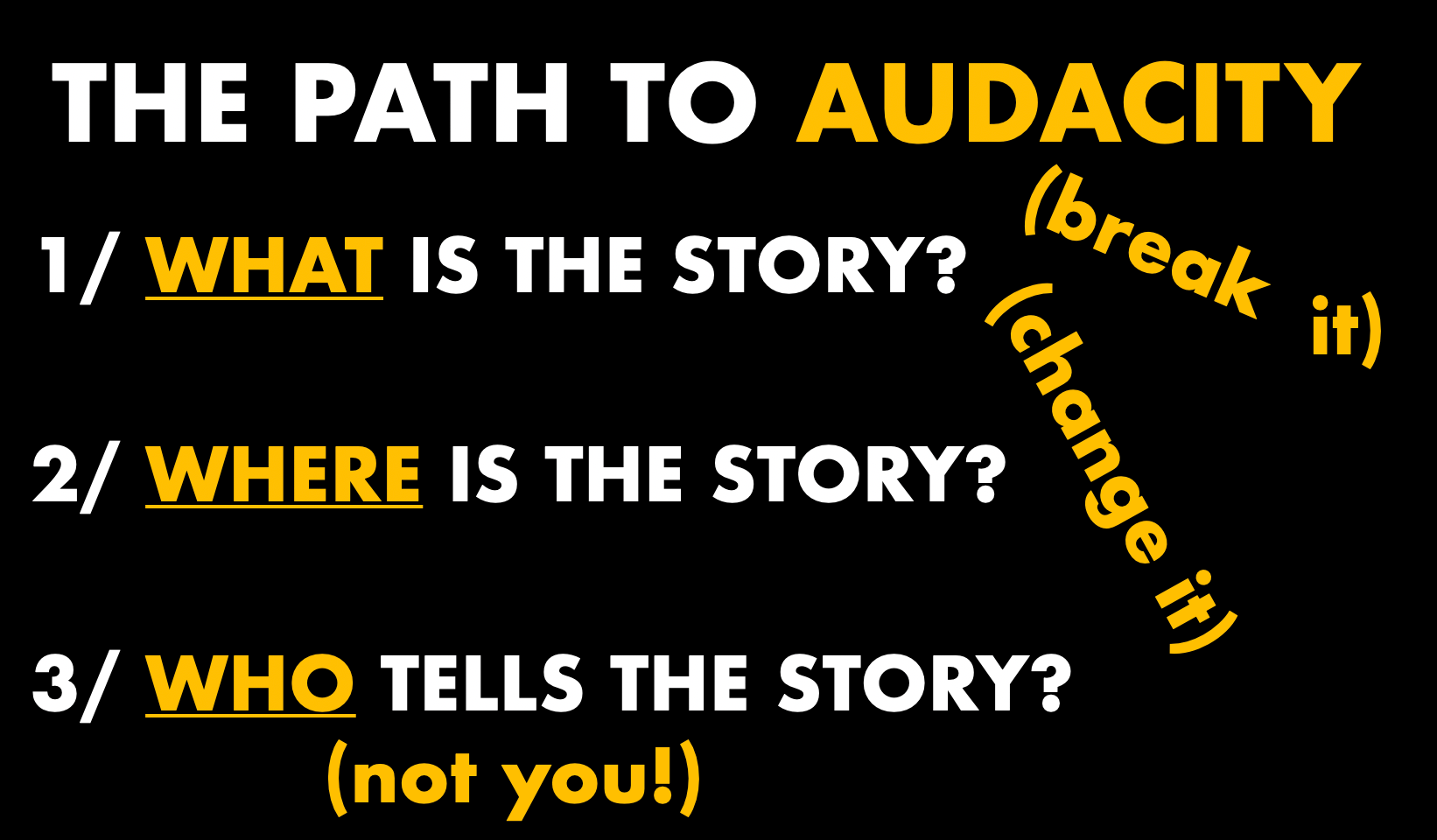
Slide from Mark Schaefer
Mark Schaefer insists that the storyteller should not be you. Which jives perfectly with Chris Cunningham’s sentiment that in the future, every company will need a creator.
You’ll need someone who can tell stories, share opinions, and represent your brand publicly. If you’re lucky enough, you can find someone internally. Empower them to publish content and participate in communities.
As Adam Steele of Loganix told me at the Evolve after-party, Ahrefs is a company that does this well—we have tons of known faces in the SEO community: our CMO Tim, our YouTube guru Sam Oh, our Director of Content Marketing Ryan Law, the SEO’s SEO Patrick, and SEO god Glen Allsopp. The rest of us are nipping at their heels too: Louise, Despina, Mateusz, and hopefully, myself.
If you can’t find someone internally, then hire creators.
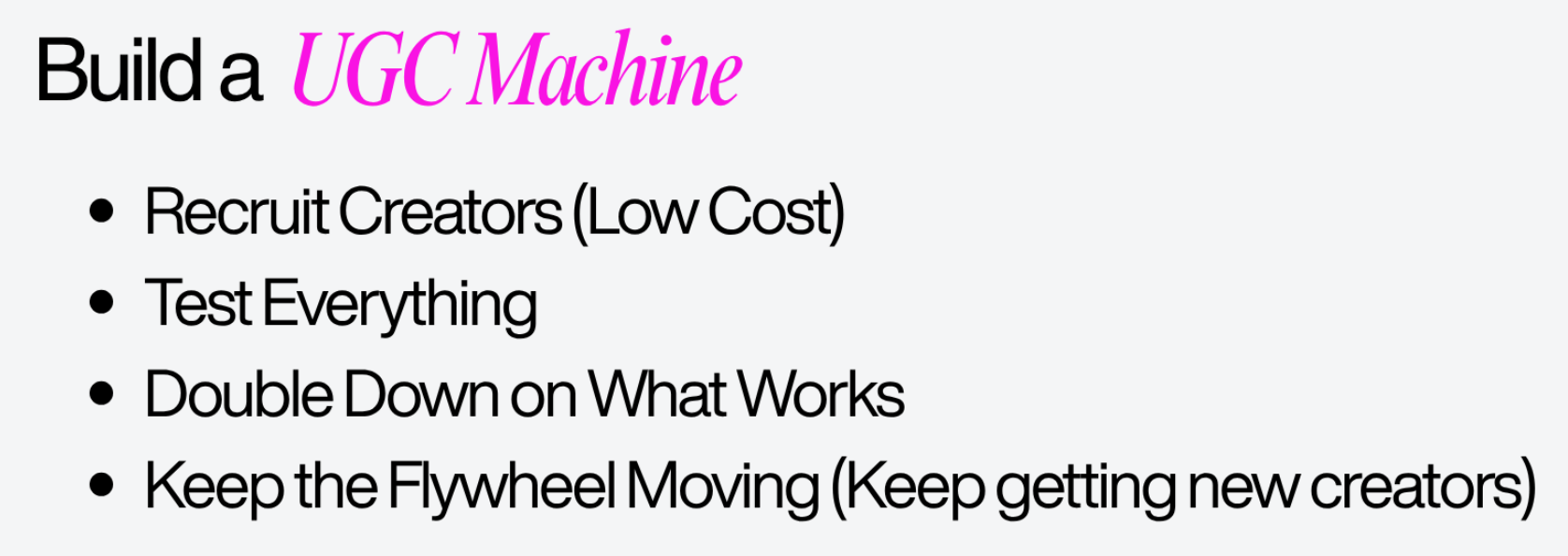
Slide from Chris Cunningham
As Chris says during his talk, you can play the moneyball game even in marketing. Find creators who are not big but have had some viral hits. Those are the people who understand the algorithm and know how to play the game.
Final thoughts
SEO is evolving. (Pun intended.) And as SEO changes, so do our opportunities. It’s not just about ranking first on Google anymore, but first in mind, first in conversation, and first in trust.
The speakers at Ahrefs Evolve showed us that this shift isn’t something to fear. It’s a chance to do more creative work, build stronger brands, and connect with audiences in ways that actually matter. When everyone else is churning out AI content, being genuinely human becomes your superpower. When search happens everywhere, you get to be everywhere too.
The best part? This is just the beginning.
Ready to be part of the evolution? Ahrefs Evolve 2026 is returning to the United States. Join the waitlist and be among the first to know when tickets drop.
Similar Posts
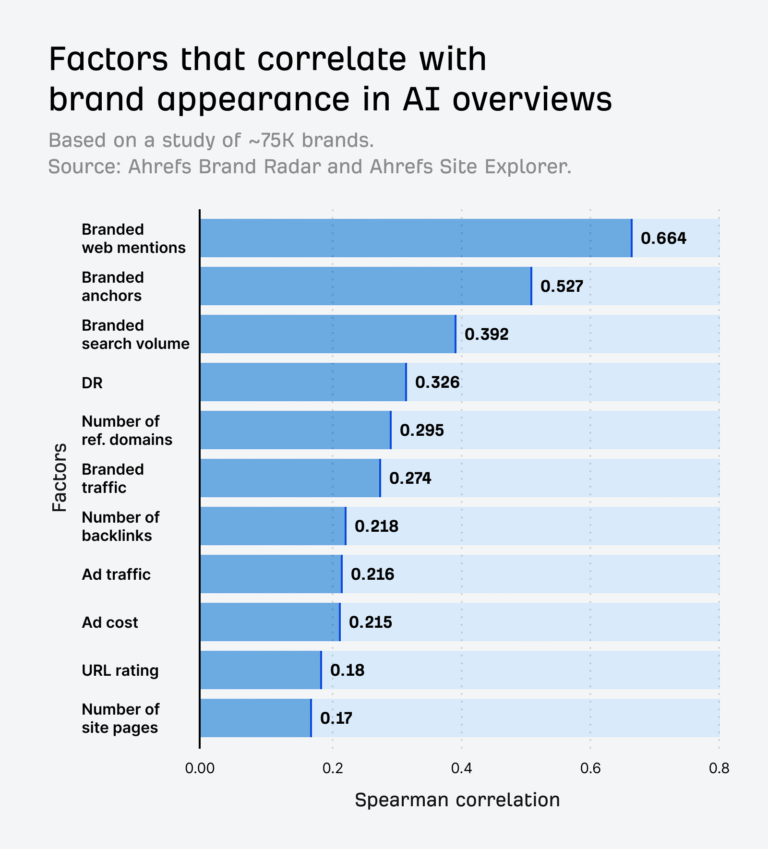
An Analysis of AI Overview Brand Visibility Factors (75K Brands Studied)
With Google’s AI mode developments, we’re heading toward a future where search results could eventually roll…
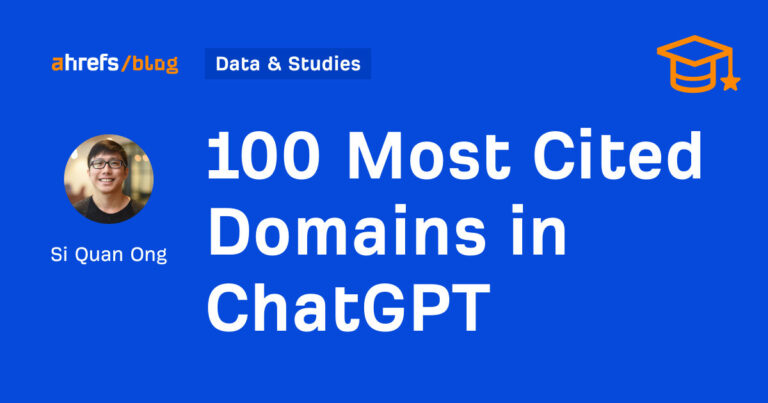
100 Most Cited Domains in ChatGPT
100 most cited domains in ChatGPT globally The top most cited domains in ChatGPT globally are…

GNX Opens UAE Office to Accelerate Expansion Across Middle East
Global Internet and private connectivity provider GNX has opened an office in Dubai, United Arab Emirates,…
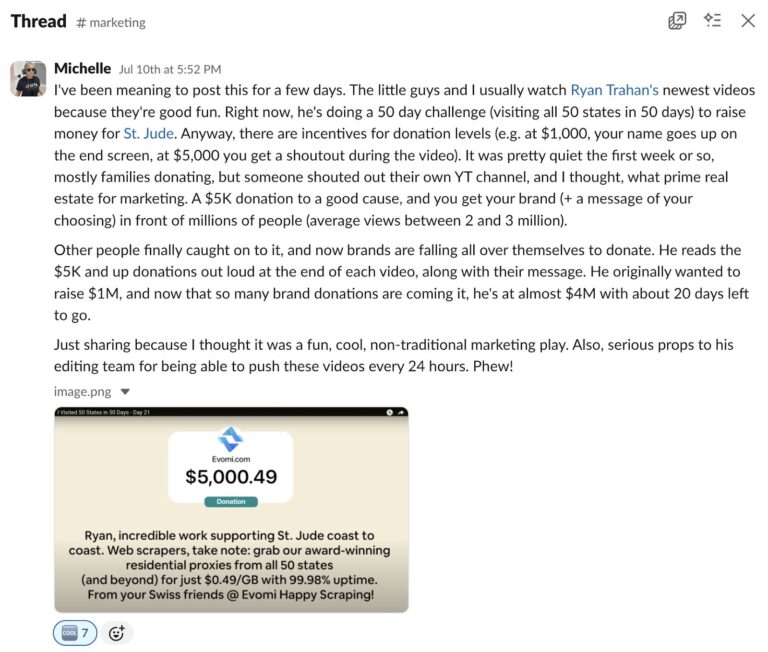
The Genius Marketing Strategy in Ryan Trahan’s 50 States Challenge
It started with a $100,000 donation, ended with $11 million raised for charity, and somewhere along…
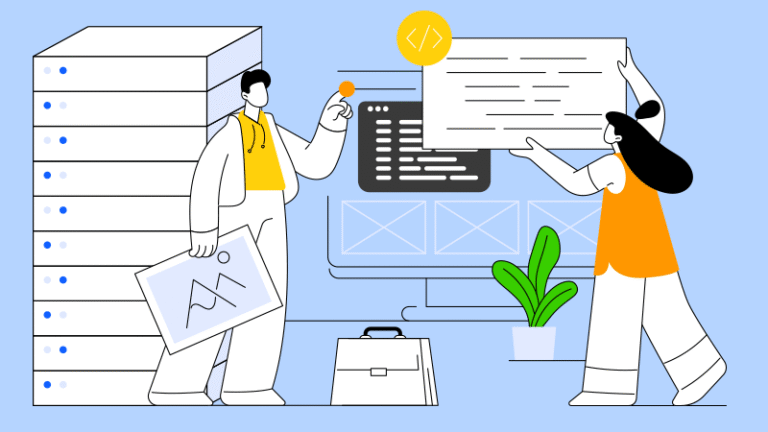
Role of User Experience in Hosting: Why Speed Isn’t Everything
In the digital-first era, seamless web hosting user experience is more than just a technical checkbox—it’s…
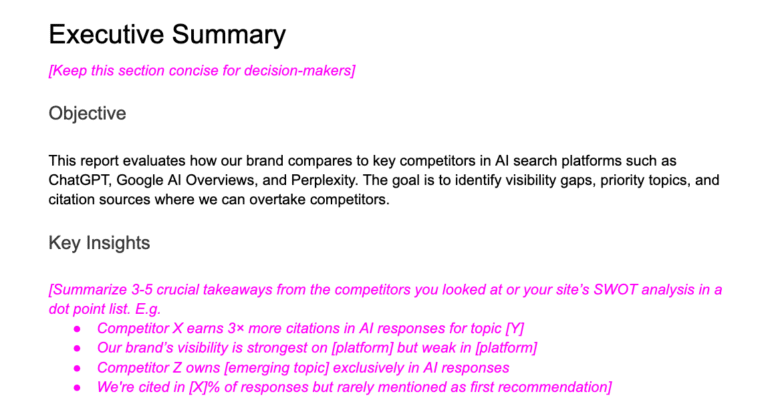
How to Compare Your AI Visibility Against Your Competitors
If a competitor is mentioned more often, cited more frequently, or framed more favorably in AI…